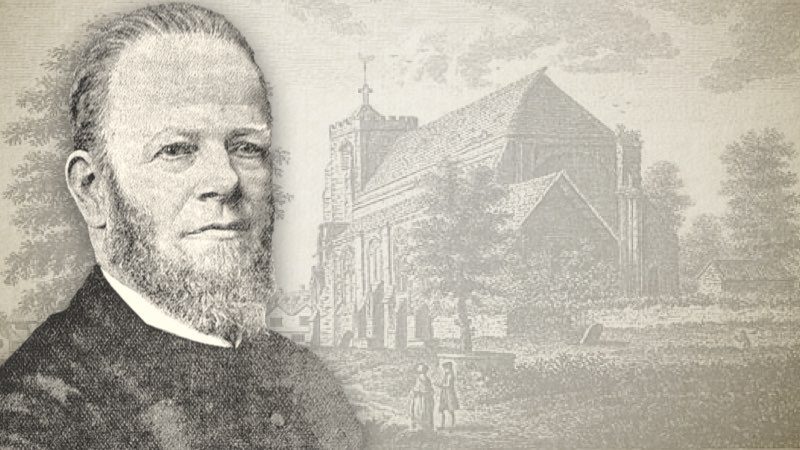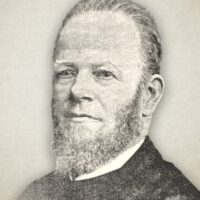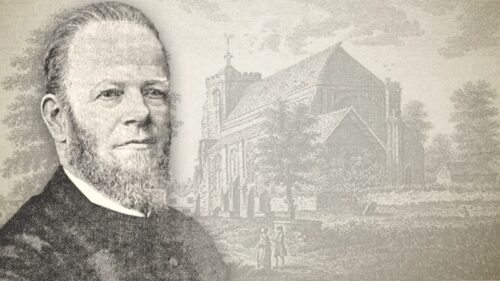
“Labourers Are Few”
The real want of more Pastors in our Strict and Particular Baptist Churches is a solemn fact, and one that presses itself upon our attention daily with increased force. A cursory glance at the low state of many of our pastorless churches, and their united and constant appeal for Pastors (and in some instances “Supplies”), warrant us in giving publicity to our long pent-up thoughts and feelings on the matter. This we do, not for any personal aggrandisement, but for the glory of God and general good of the Denomination.
The demand for Pastors and occasional preachers of the right kind has for many years been greater than the supply. It is therefore quite time that legitimate steps were taken to meet the needs of churches requiring ministerial help.
What should be the first step towards the object desired? Can any one suggest a better plan than that laid down in God’s precious Word, and especially the portion which fell from the dear Redeemer’s own lips (see Matt. 11:36,37,38)? The Heaven-given instruction is, “Pray ye therefore the Lord of the harvest that He will send forth labourers into His harvest.” We would that these beautiful and appropriate words were more intensely felt than they appear to be, by praying men, women and children in our beloved Denomination, and that they were written in large letters of gold in every sanctuary in the world.
The lukewarm condition of several of our churches reminds us of the backsliding state of Israel in the times of Jeremiah; but even then the Church was not left without a remedy (Jer. 3:14), which was supplemented with the following promise (verse 15), “And I will give you Pastors according to Mine heart which shall feed you with knowledge and understanding.” However, instead of churches in the present day constantly appealing to God for the men they require, they, in many instances, resort to means, for which no authority exists in the Scriptures.
God-Made Preachers
Excellent and able men whom God has raised up from the shop and field, to do His work, have been, and still are, despised by a certain class of fastidious hearers. Similar circumstances transpired of old with regard to the mode of carrying the ark, contrary to God’s order, and with which He was not well pleased.
God does not always bow to human maxims: He frequently calls men from very menial positions to do His work; young men, however, for example sake, should be members of Baptized Churches of truth, before attempting to preach. If they possess gifts and qualifications for ministerial work, they should not be unnecessarily checked as has been the case with many in the past, but prayerfully and carefully watched over and encouraged by their respective Pastors and elders, and if God has a mission for them, He will find them out and employ them in His own time and way.
Assemblies outside the pale of the Strict and Particular Baptist Denomination, appear from certain statistics surfeited with preachers of the latitudinarian order, who must preach because they have been trained to do so; and the churches to which they become attached as Pastors, speedily grow like them—loose in faith and practice. Of course there are exceptions to the general rule, but they are very rare and far between.
The men we want for our pulpits are such as have been taught by the Holy Ghost, and distinctly called and thrust into the work of the ministry by the same power similar to Isaiah (6:8), Jeremiah (1:4-10), Paul (Gal. 1:15,16), and a host of other Bible characters. The Lord is as equally able now as in Scripture times to raise up men and to qualify them for His sacred work without much artificial polish. The harvest is the Lord’s, and He will be enquired of by the churches to send the right sort of labourers into His vineyard to effect His design. Although the Saviour commanded His disciples to go and teach all nations, &c. (Matt. 28:19,20), He nevertheless said, “but tarry ye in the city of Jerusalem until ye be endued with power from on high” (Luke 24:49).
Preachers in general are supposed to speak when they have something to say, as in the case of the disciples just quoted, but by the force of custom, preachers are expected to begin to speak exactly at a specified time whether they are ready or not, and to leave off, not when they are done, but when the given time is up for closing their discourses, and should they be a little over or under the prescribed time they at once render themselves liable to reproof! In New Testament times men spoke for God as they were moved by the Holy Ghost, and no man was allowed to stop them in their work; and God blest them, and their ministry. But now circumstances have so altered that the Holy Spirit is limited to work by the clock. In olden times places of worship had no clocks, either outside or inside; but after a while clocks were placed outside of buildings devoted to the service of God, to remind persons of the time for commencing divine worship, and later on clocks were placed inside of sanctuaries to warn preachers when to terminate their discourses, and congregations to quit the premises. Such clock-work order of preaching the gospel may be agreeable to modern usage, but it is not in keeping with the practice of the apostles. However, it is generally considered that extremely long sermons are not often profitable. Few persons today could endure to listen patiently to a three hours’ sermon. Probably because they have not been initiated to it, as in the Puritan age. Dull and lengthy prayers are also regarded as intolerable, and mainly destructive to public prayer-meetings (Matt. 6:7). This fact we have been painfully cognisant of in several instances.
The “Supply” System
With regard to churches that are too feeble to support Pastors entirely, would it not be well for the officers of such churches to engage acceptable and obtainable brethren for at least three months consecutively, instead of having ten or a dozen different ones during that time? The brethren themselves would then be better able to judge the worth of their ministry than under the present system of having a fresh minister nearly every Lord’s-day: the expense would be about the same. If brethren (earning their bread during the week by either mental or manual labour) were requested to minister statedly to respective churches they could do so, and follow their secular employment too, until the friends were quite able and willing to entirely support them. This is the course we have adopted for many years.
In helping churches to weekly “supplies” the London Strict Baptist Ministers’ Association was never more valuable than it is at the present time; and we could wish that it possessed funds to support a regular course of preaching services in all places in the kingdom, where the Gospel (after our order) is never heard.
Sermon-Reading In Our Churches
It is a solemn source of regret to us to hear of many religious congregations that are rarely favoured to listen to living sermons from the lips of living ministers, but owing to the lack of funds printed sermons are resorted to and publicly read in their midst Sabbath after Sabbath, or prayer-meetings held instead of regular preaching services, to save expense! Such services, where they are too frequently held (however good the printed sermons may be) must in time prove fatal to success. We have sorrowfully witnessed the decline and collapse of several churches that have adopted the system of sermon-reading in the place of a living ministry. God will not honour such a course of procedure, as it is not in agreement with His word. He works by various means, we know, but He has instituted the public ministry and has greatly honoured it in the gathering in of His elect people, and when His servants are no longer wanted by Him in the Gospel field, the great end will come.
We earnestly hope therefore that every church in the Denomination will be led to see the necessity of imploring the Lord of the harvest to send “more labourers into His vineyard, that the fruits of His everlasting love may be seen in rich abundance.
“O Lord, stir up Thy power
To make the Gospel spread,
And thrust out preachers more
Through Him, to raise the dead;
With feet to run where Thou dost call,
With faith to fight and conquer all.”
W. Winters, Editor
Waltham Abbey, Essex
Earthen Vessel 1889
William Winters (1834-1893) was a Strict and Particular Baptist preacher. In 1876, he was appointed pastor of Ebenezer Strict Baptist Chapel on Fountain Place, Waltham Abbey, where he remained until his death. He was also a religious journalist, historian of Waltham Abbey, bookseller, hymn-writer and editor for the Earthen Vessel, Gospel Herald and Cheering Words.




